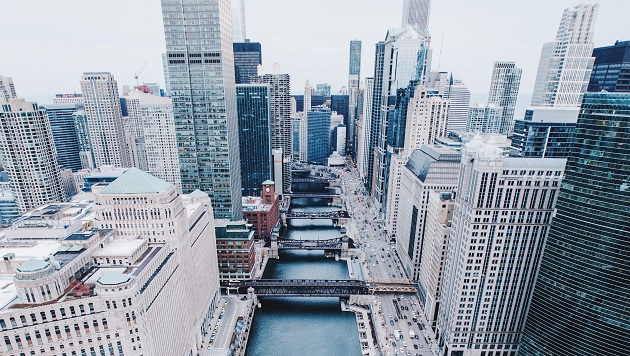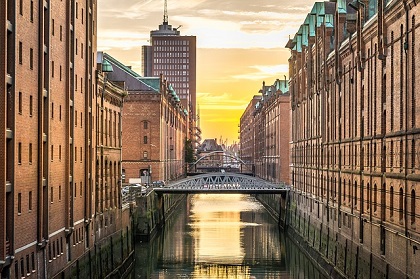A generous attitude to a city forms citizens instead of consumers, communities that seek to promote the common good instead of promoting just their own agenda.
 Photo: Alex Livingston (Unsplash, CC0)
Photo: Alex Livingston (Unsplash, CC0)
As we have all been noticing, the world is urbanized and globalized again.
After centuries of regional economic systems, stable trade, nation state politics, and homogeneous populations, our planet is undergoing a transformation in which the interconnected city is more and more the center actor and stage of human culture. Not since the globalized world of the Roman Empire were cities so interlinked, dense, diverse, and influential. Just as how the direction of the ancient culture was set in places like Alexandria, Antioch, Constantinople, Rome, today’s so-called new “global village” is groomed in the urban matrix of cities like Dubai, Singapore, New York.
“Neither 19th-century balance-of-power politics nor 20th-century power blocs are useful in understanding this new world,” assessed Parag Khanna in an article. “Cities are the world’s experimental laboratories and thus a metaphor for an uncertain age. They are both the cancer and the foundation of our networked world, both virus and antibody. From climate change to poverty and inequality, cities are the problem — and the solution.”[1]
In recent years a sociological category has emerged to help explain this new urban social order: the global city. Defined as places which concentrate high degrees of economic production, such as multi-national companies and stock exchanges; political decision-making, like seats of governments and multi-lateral organizations; cultural influence created by a concentration of media, publishing and information sectors; and developed infrastructure, these cities virtually guide the cultural trends that inform our thinking.
The last rank of global cities issued by Foreign Policy magazine notices the lasting influence of traditional heavyweights, like New York, London and Paris, while half of the ten most influential cities lie now in the Asia-Pacific region: Tokyo, Hong Kong, Singapore, Seoul, and Sydney. At the same time, the rapid urbanization in many countries is forming gigantic centers, which may approach in future years close to 100 million inhabitants around cities like Shanghai and Mumbai.
As the city increases its profile, there is an ongoing debate on how we should relate to it. Some romantics seek to flee the city, decrying its evils of traffic, pollution, inequality and crime, and long to return to a past of homogenous villages and bucolic life. Many become afraid of the city and its diversity, and try to cocoon themselves into gated neighbourhoods, ethnic ghettoes or communities of people of the same age and lifestyle. Others become fascinated and adopt the attitude of merely using the city and its prestigious institutions to booster résumés and private projects.
 Photo: Gunetheling (Pixabay, CC0)
Photo: Gunetheling (Pixabay, CC0)But the wisest attitude to the city I have come across was crystallized a long time ago, when two Ancient cities clashed and one of them won. When Babylon condensed the height of human power and technology, and conquered Jerusalem, they brought the local population to be part of its social matrix.
Yet the message God sent to the people through the prophet Jeremiah was radically different from what they expected. They were not to flee the city, or to be afraid of it, or to just use it; they were to serve Babylon and work for its prosperity. “Build houses and settle down; plant gardens and eat what they produce. Marry and have sons and daughters … Increase in number there; do not decrease. Also, seek the peace and prosperity of the city to which I have carried you into exile. Pray to the LORD for it, because if it prospers, you too will prosper.”[2]
To adopt an open, generous attitude to a city into which you come as a slave was surely as revolutionary then as it is now. It forms citizens instead of consumers; it generates communities that seek to promote the common good instead of promoting just their own agenda. It embraces diversity, builds bridges, and dethrones prejudices. And it makes us prosper, for when we are working for the good of others, and succeed even a tiny bit, and give the smallest of contributions, and help improve things even for a handful of folks, we’ll see that we were the greatest beneficiaries. A city flourishes, and we mature.
[1] Parag Khanna, Beyond City Limits (Washington DC: Foreign Policy Magazine, sep-oct 2010). http://www.foreignpolicy.com/articles/2010/08/16/beyond_city_limits
[2] Jeremiah 29:5-7

Las opiniones vertidas por nuestros colaboradores se realizan a nivel personal, pudiendo coincidir o no con la postura de la dirección de Protestante Digital.
Si quieres comentar o